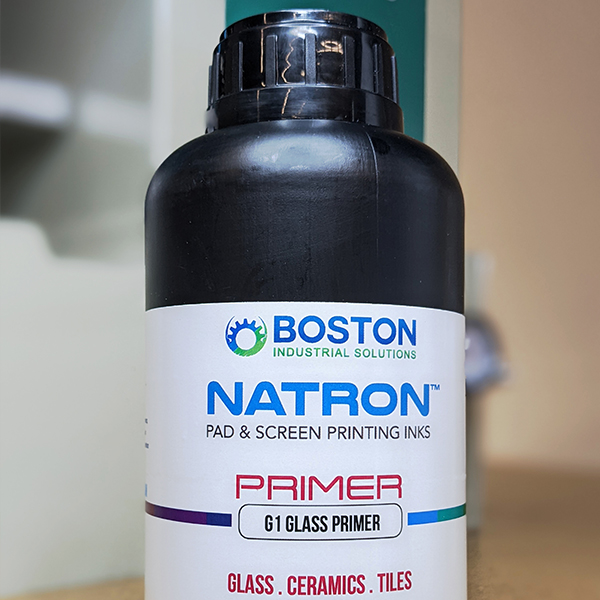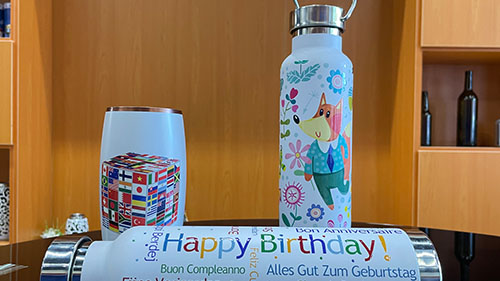Boston Industrial Solutions, Inc., has UV ink primer solutions for all types of substrates. The Natron G1 primer for glass is the world’s best one-part pre-treatment system for glass. This breakthrough inkjet ink primer uses nano-particles to optimize UV ink adhesion on glassware and other substrates. Glassware primed with this primer can withstand many industrial washes without any impact on the image. Apply the Natron G1 UV primer for glass with a lint-free cloth or towel.
As discussed, there are substrates with characteristics that inhibit ink adhesion. Such substrates require adhesion promoters which are specific for each substrate. We offer several types of primers that aid ink adhesion on all substrates. Boston Industrial Solutions, Inc., has inkjet primers for glass, metal, plastic, tile, rubber, and more. You can expect exceptional ink adhesion, vibrant print, increased durability, and improved abrasion resistance on a product is pre-treated with our primers.
Boston Industrial Solutions, Inc., solves the hardest printing challenges. We are scientist dedicated to solving the hardest printing challenges. We use chemistry and data to help customers achieve exceptionally high-quality prints. Our goal is to reduce the number of primers that you need to print on as many substrates as possible.
We have a primer that is right for your application. To learn more about our primers, please visit our technical data section, which is available for all of our products. Additionally, we offer free adhesion testing upon request in order to determine the best inkjet primer for your product. Our goal is to help our customers deliver durable, vibrant, high-quality prints.

